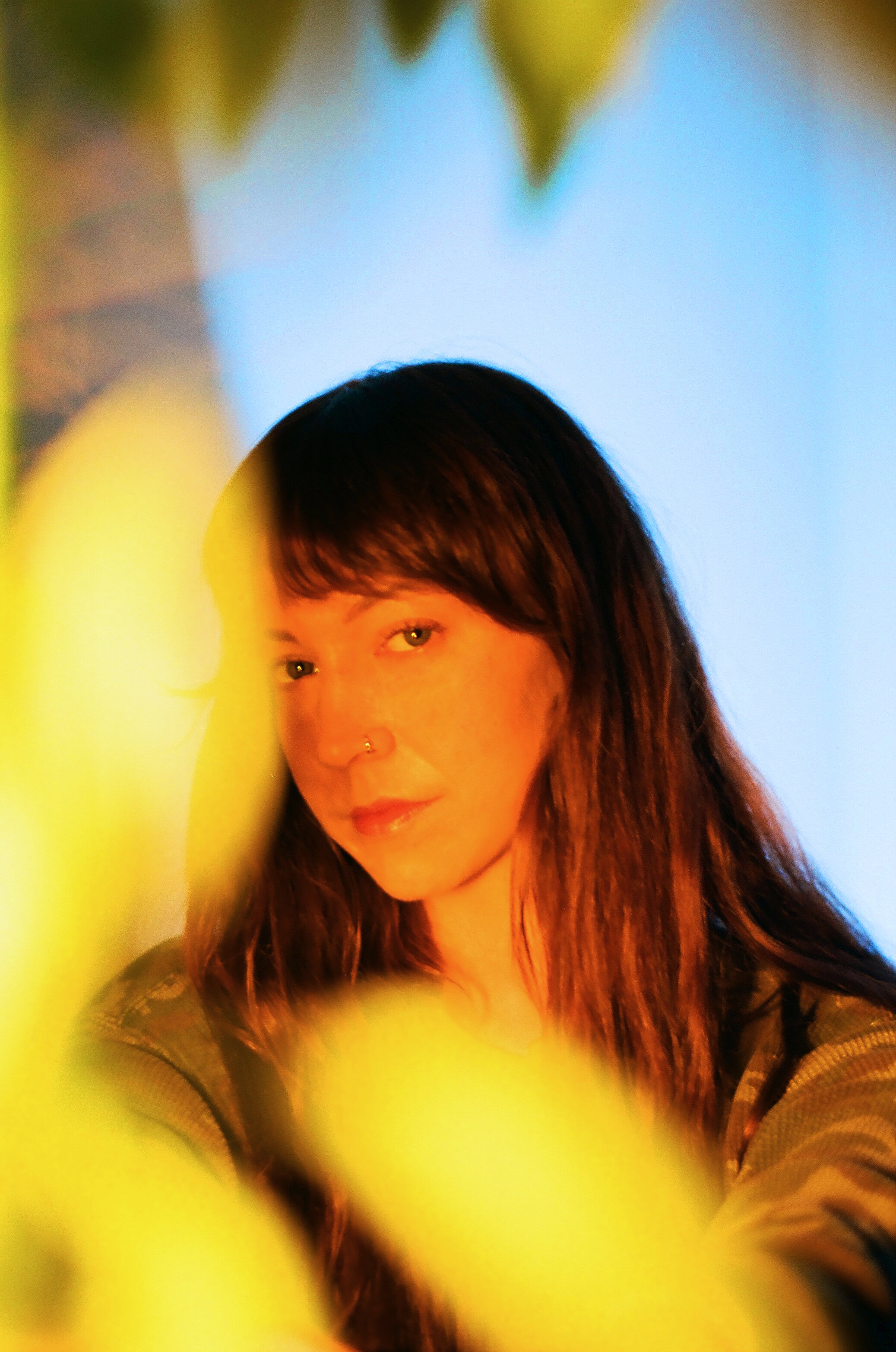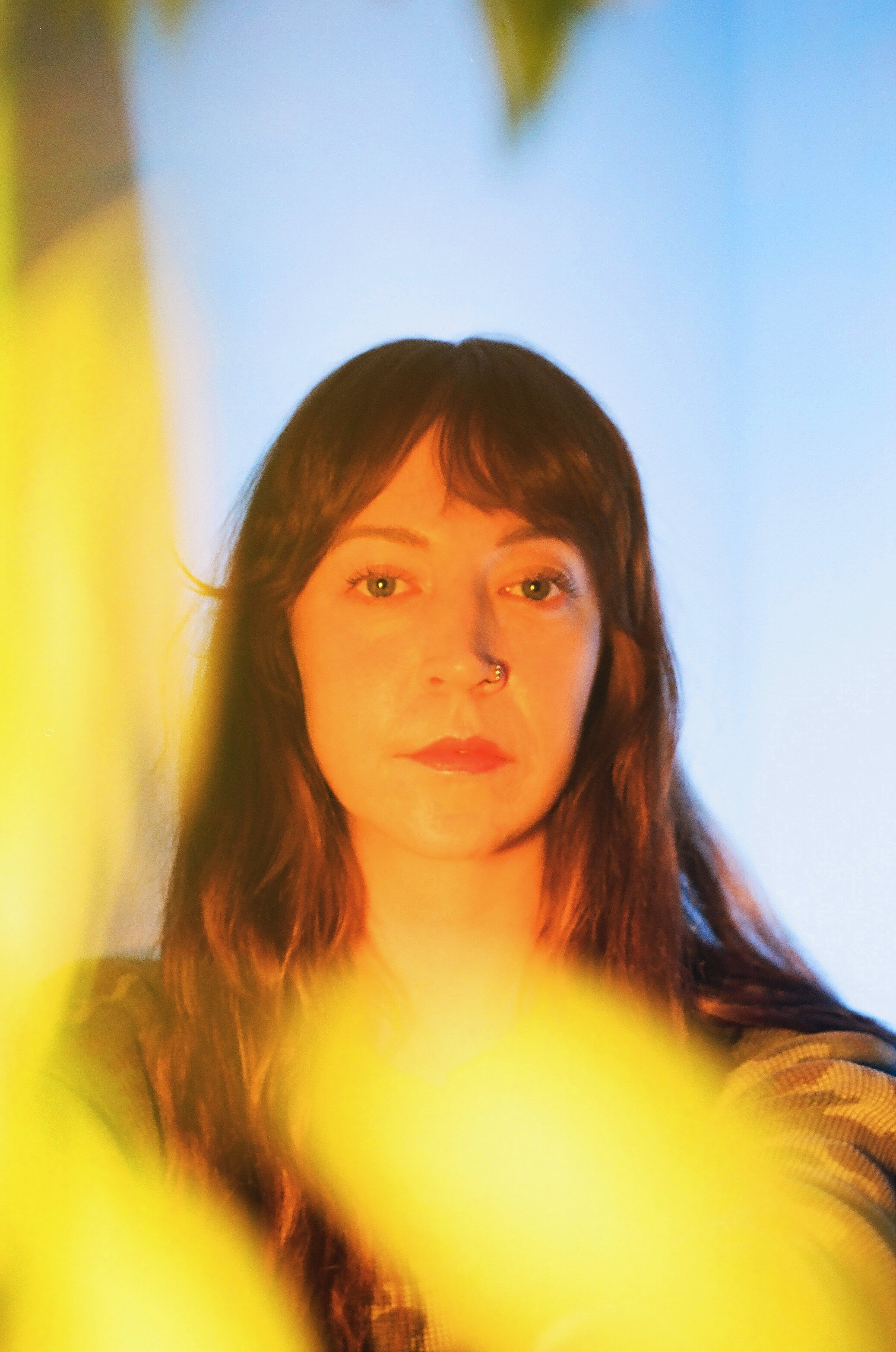Jodie Overland on How Dancing Can Induce Socio-Political Change
Jodie Overland by Ariana Molly
What’s better than dancing to forget? Dancing to induce socio-political change. As a DJ, producer, event organizer, and community activist, Jodie Cook embraces this true spirit of dance culture. The Vancouver-based artist known as Jodie Overland has been recognized as a rising star in Canadian electronic music, bringing an acid-infused incursion of hard, dark techno to a scene characterized by chilled-out dream house. With upcoming releases on the labels Sweat Equity NYC and Lisbon-based Naive, Overland has only recently began making music full-time - and yet her near-decade of DJing has established her as a sonic wave-maker touring the world over.
However, Overland’s hypnotic sounds are not the only waves she’s making. Last summer, Jodie organized Rave Against Renoviction - a rave protest outside of Lululemon-founder Chip Wilson’s $73.1 million Vancouver home. Over 60 artists gathered together to dance in protest of the displacement resulting from Wilson’s development firm’s eviction of artist studios and music venues with impossible rent hikes. I got a chance to catch up with Overland before her Montreal Boiler Room debut this month, got the lowdown on her involvement in Vancouver’s underground, and the aftermath of raving outside of Chip Wilson’s house.
Jodie Overland by Ariana Molly
Overland got her first set of CDJs at 17 years old, when she was living in Calgary. Upon moving to Vancouver seven years later, she had just learned how to use Ableton, and had little more than a few tools and a dream of one day releasing her own music. She first moved in with fellow artist and Planet Euphorique founder, D. Tiffany. “I holed up in this warehouse and made music for the better part of a year. I would go to different raves, but no one would book me because no one really knew who I was. I realized I needed to figure out who the bookers were at these places. So I just started throwing my own parties - and I haven’t really looked back since.”
Those parties were the beginning of Freak Hour - the Vancouver-based warehouse rave series that Overland described as, “the Berghain of Vancouver, where it’s just peak-hour techno all night.” Prioritizing booking women, queer, and nonbinary artists, Freak Hour’s bottom line is hard, fast techno, “There’s no opening or closing set - people just know that there’s gonna be hard dancing all night.”
Jodie Overland by Ariana Molly
Some of the organizations that were ‘renovicted’ by Low Tide Properties include Red Gate Arts Society, AIDS Vancouver, Index, and 333 - which was a frequent venue for Overland’s Freak Hour parties, among many other iconic underground events. That’s how the idea of Rave for Renoviction came to be - upon the closing of two monumental venues for the underground music community, one of Jodie’s friends asked the obvious question, “Want to throw a rave outside Chip Wilson’s house?” Clearly, her answer was ‘yes’.
Similar to the evictions and displacements induced by big developers such as Shiller Lavy Realties in Montreal, Wilson’s Low Tide Properties was responsible for evicting artists and community services that were deeply rooted in the local identity - taking an especially hard toll on marginalized LGBTQIA2S+ and BIPOC groups.
Chip Wilson made an unexpected appearance just as the protesters were setting up for the rave. After listing all of his charitable donations for various artistic causes, he clumsily attempted to justify the firm’s operations, stating, “I didn’t get here without making a lot of mistakes and having failed many times, and many times I couldn’t make rent because I didn’t have a product that people actually wanted to buy.”
“OK, thanks for the econ lesson.” Although the exchange was brief, Overland noted that the athleisure magnate’s appearance made a huge difference in the aftermath of the protest, “We probably would have just looked like a bunch of crazy art people staging a rave in front of a billionaire’s house.”
Thanks to clumsy one-liners like, “Socialism will always fail,” Chip’s comical response brought the public’s attention to the plight of Vancouver’s art community. “The aftermath was just really good press for the arts community. Since then, Vancouver started to donate spaces to artists and collectives and to help subsidize rent for artists. Vancouver is also looking into replacing the square feet that have been lost by gentrification to kind of keep the fabric of the art community alive.” Programs supporting artist spaces in the city include the Artist Studio Award Program and the Artists in Communities Program.
Jodie Overland by Ariana Molly
What artists or sounds have you been inspired by lately?
I digest music in a strange way. I get obsessed with things, then I move on. I’m into individual songs, but I don’t really follow particular labels. I just kind of stumble upon things and I’ll be like, “This is sick,” and move on.
I’m obsessed with Leticia (softcoresoft), I think everything she does is fantastic - I could not go on more about her. Violet has been such a mentor, she’s like my rave mom. She was the first person who said “yes” to my music and I was just like, “what?” (laughs) she has always been there for me. My friend Eric from Edmonton, he goes by Frazier, makes amazing, crazy electro. Reptant, he’s a good friend, also makes wild electro. I don’t really play a lot of that kind of music, but I like to listen to it.
I listen to a lot of ambient and sometimes I don't listen to anything at all. Sometimes I like no music. I need to rest these ears a lot, I find. Sometimes it’s nice to put on a YouTube playlist and let it run - then I don’t have to do any of the work to choose anything.
What does your gear setup look like?
Oh god… I’m never gonna impress gear-heads honestly (laughs). I just work in a dinky little studio. I have my little MOTU microbook sound card and my Roland 303, and then just my laptop. I mainly just have samples of an 808 and a 909, then I use certain plugins and delays to make them sound cutesy. It’s a pretty simple setup. The delays and reverb that I’m using are the only thing I keep super consistent.
Jodie Overland by Ariana Molly
I saw you have big things coming in 2020 - records on Sweat Equity and Naive - what’s been your mindset for the new music you’re writing? What are you excited about (in music or in life) for this new year (or decade...)?
The one with Sweat Equity is really about autonomy because for a long time I wasn’t autonomous. I’m just really coming into myself as an artist. The one on Naive is just that playful, naive theme that [represents the label] - it’s about how I’m not a genius at anything, I’m just still trying to figure it out myself. They're the same but also different.
I go through really hard times and then I’ll spend a week just writing music. I’ll come out of that hole and be like, “Ok, wow, um I feel better.” After that, I just won’t make music for a month, and then I’ll go through another hard time and it starts over again. I find that I’m only able to write when I’m going through hard times, which is probably not healthy but, you know, I need to exercise the demons.
I’m doing music full time now, which I never thought I would do. It was always just a fantasy, but I quit my job - told them I wouldn't really be able to work since I’ve been away so much. I’ll be in Europe for most of this year and in the US a bunch, just going wherever the wind blows, or wherever someone wants me to come.
Public Works, San Francisco
https://www.residentadvisor.net/events/1372724
Dolly, Vancouver
https://www.residentadvisor.net/events/1380153
Tresor, Berlin
https://www.residentadvisor.net/events/1380381
More and more DJs and event organizers are taking the initiative to take activism beyond social media likes and reposts. The community values of the dance music scene are a critical tool in mobilizing people to engage in political activism. The history of dance music is built on this, and preserving DIY spaces is essential to keeping these movements alive. In Dr Motte’s famous words during Berlin’s Love Parade in 1989, “We want to keep this place for ourselves, our children and all the others who will be on this planet after us.”
To the artists organizing events in support of the Wet'suwet'en crisis, we see you and we would like to support you however we can.
Jodie Overland
Photography by Ariana Molly
Ariana Molly has been striving to capture the feelings with no name in her short films, 35mm photographs, and music since she could identify her pulse.
Maya Hassa
Maya is a music journalist from Chicago who fell head-over-heels in love with Montreal’s unique DIY culture. She works to promote underrepresented and underground artists through her writing.

















